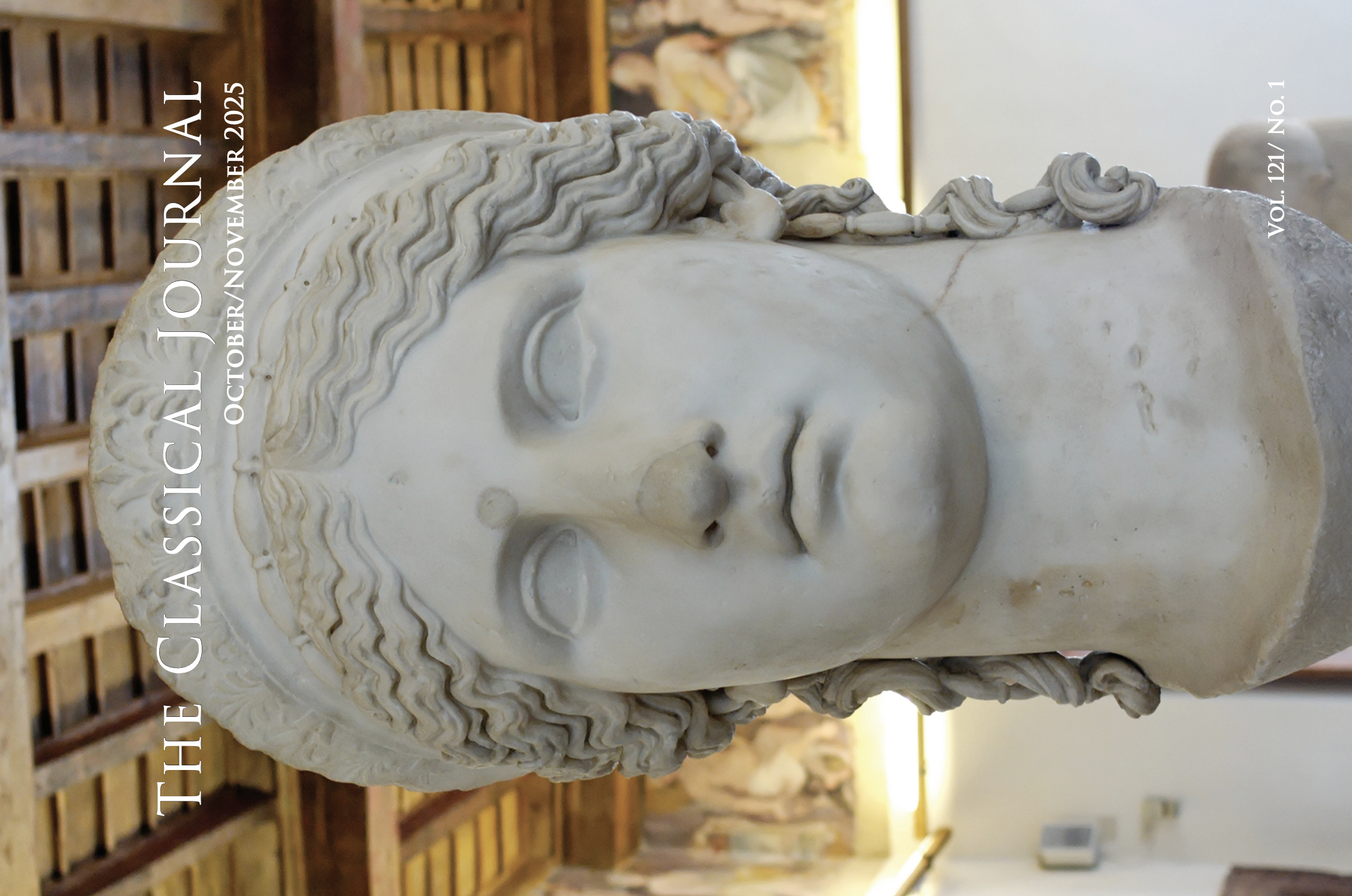The following articles are contained in CJ
105.2
Abstracts of Articles
CORNELIUS NEPOS: KEY ISSUES AND CRITICAL APPROACHES
This article traces major trends in scholarship on Cornelius Nepos from the relatively low opinion of him in the mid-20th century to the reassessment of his work that began in the 1980s. This reconsideration of Nepos took place within a larger reevaluation of ancient biography. New work on Nepos, like that on Plutarch and Suetonius, stresses the biographer's methods and moral aims over his style and historical accuracy.
NEPOS' BIOGRAPHICAL METHOD IN THE LIVES OF FOREIGN GENERALS
This article argues that the programmatic statements in Nepos' preface to the Lives of Foreign Generals and in some of the Lives themselves help establish that his biographies emphasize the virtues of his subjects and not their res gestae. References to unlearned readers, often taken as an indication of the general ignorance of Nepos' audience, are actually a method for constructing an ideal reader who will be sensitive to cultural differences between Greeks and Romans and will understand the differences between biography and history.
SHARED VIRTUES AND THE LIMITS OF RELATIVISM IN NEPOS' EPAMINONDAS AND ATTICUS
Seeking the common ground that makes it possible for readers to learn from the comparative structure of Nepos' On Famous Men, this article examines Nepos' presentation of two markedly different figures, the Theban general Epaminondas and the Roman historian Atticus. Despite their differences in content and setting, these biographies endorse a similar set of moral and intellectual virtues that are presented as seemingly normative and not culturally determined, an endorsement that limits Nepos' advocacy of cultural relativism.
CYNTHIA SERPENS: A READING OF PROPERTIUS 4.8
A pattern of shared imagery in Prop. 4.8 assimilates the lover to the puella whose chastity is tested in the Lanuvian rite (4.8.3?14), and Cynthia to the masculine tutelary serpent that does the testing. The figure emphasizes the gender reversals in the poem and heroizes Cynthia, whom the poet has 'resurrected' for a final appearance from her death in 4.7.
LUCAN'S BULLS: A PROBLEMATIC SIMILE AT BELLUM CIVILE 2.601-9
This paper analyzes Lucan's simile through the lenses of poetry, philosophy and politics, and suggests that the key to interpreting these lines lies in the unusual behavior of the bulls, an inconsistency that prompts the reader to re-evaluate the ostensibly positive portrayal of Pompey.


